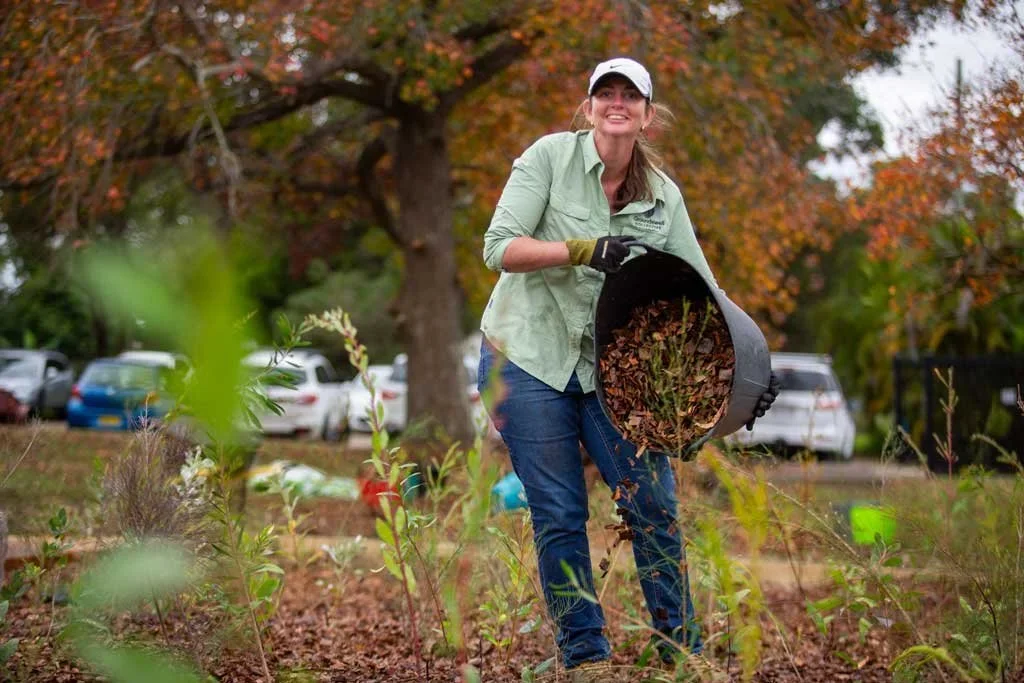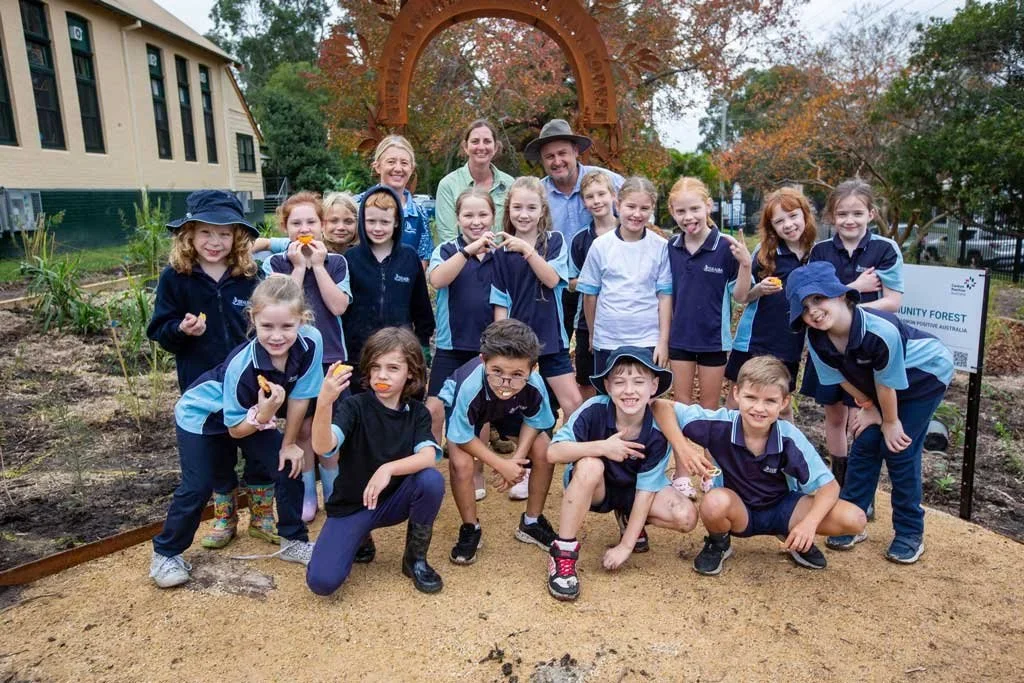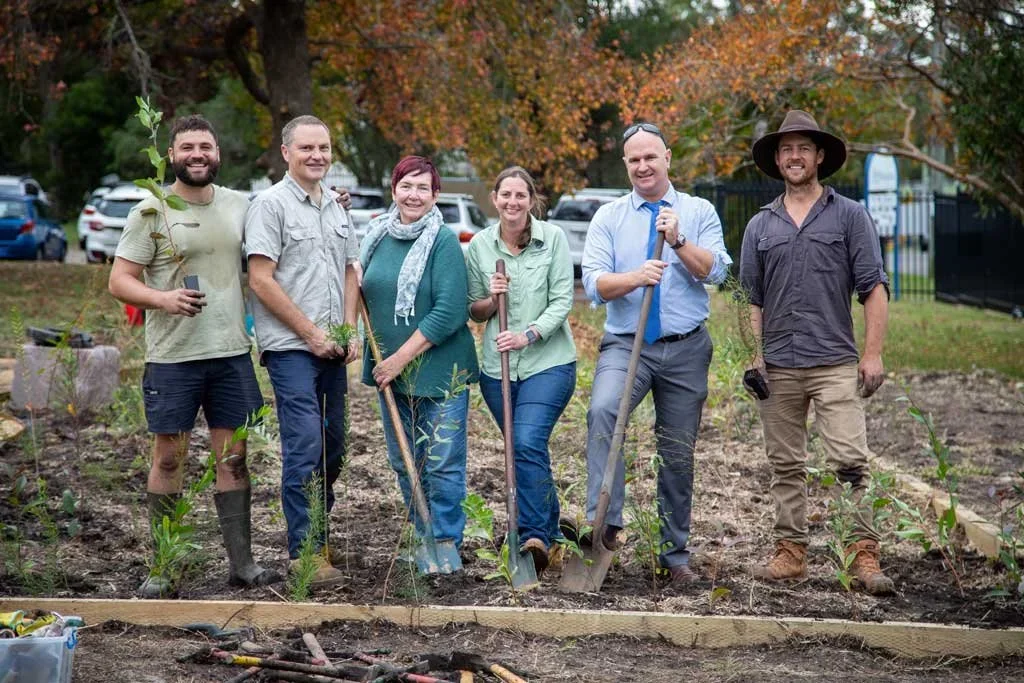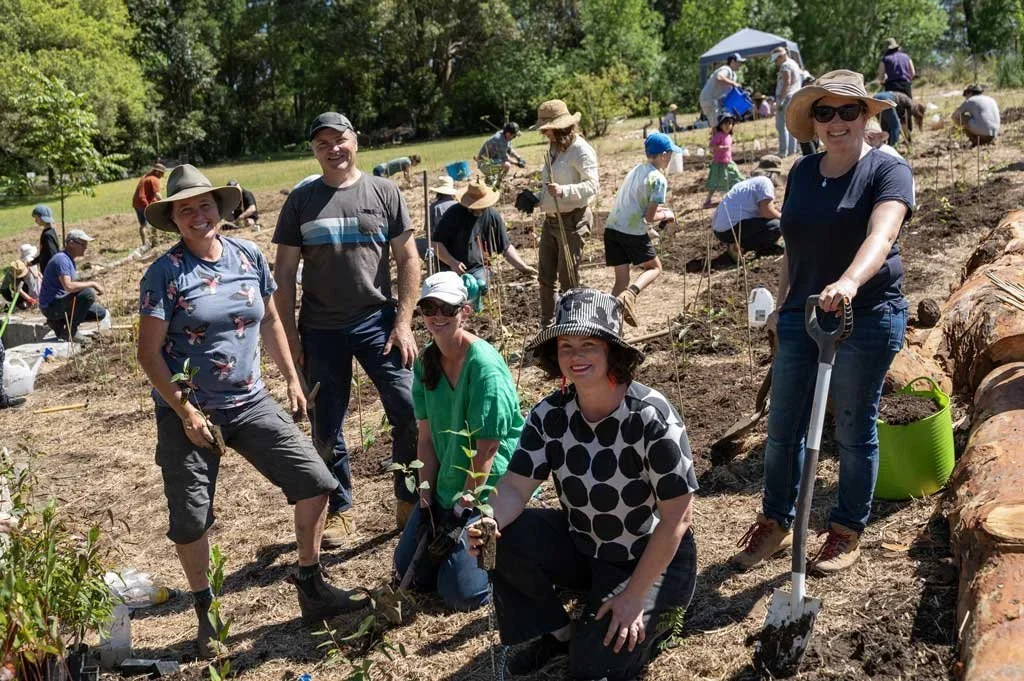Regenerating Hope: Anna Noon's Tiny Forests Are Growing Big Change
In the heart of Lake Macquarie, NSW, a quiet revolution is taking root. Anna Noon, Founder of The Groundswell Collective, is proving that grassroots environmental action can create extraordinary ripples of change across communities whilst simultaneously challenging government systems to do better.
With over two decades of experience in social work supporting some of society's most vulnerable members, Anna has redirected her passion for justice towards one of the most pressing challenges of our time: climate change. Her approach? Bringing people together through practical, hands-on sustainability initiatives that anyone can replicate in their own backyard.
Discover how Anna Noon is transforming urban landscapes and building community resilience through tiny forests that grow 10 times faster than traditional methods, proving that local action can create extraordinary environmental change.
From Growing Climate Concern to Environmental Action
Anna's environmental awakening came through lived experience. In December 2019, just weeks before Christmas, her family moved onto a lush one-and-a-half-acre property with over 40 established fruit and nut trees. It was meant to be their green oasis, a place where her children could experience the country upbringing she'd had growing up on a sheep and cattle farm in New England, NSW.
Instead, they arrived to find their new home transformed by the Black Summer bushfires. The grass crunched audibly underfoot. They spent weeks surrounded by smoke, writing fire evacuation plans. Then came the 47-degree day.
"We spent that day and night with our three dogs, two chickens and pet bird all in the lounge room with the blinds down," Anna recalls. "We were trying to keep the room cool enough so the animals wouldn't die of heat stroke."
That visceral experience of climate crisis became the catalyst for action. Anna enrolled in a course on sustainable living with the University of Tasmania and began exploring local solutions to global environmental problems. What she discovered would change the trajectory of her career and her community.
The Power of Tiny Forests
Through her research, Anna discovered tiny forests—a Japanese planting methodology developed in the 1970s by renowned botanist Akira Miyawaki. These small, rapidly growing ecosystems can be retrofitted into urban centres to counter heat islands and habitat loss whilst dramatically increasing biodiversity.
The results are remarkable: tiny forests regenerate land up to 10 times faster than traditional tree planting methods, create areas that are 30 times denser, and support biodiversity that is 100 times greater.
The Miyawaki method is deceptively simple yet scientifically rigorous. By planting native species densely into loosened, enriched soil, you can accelerate growth rates dramatically. The key is planting what would have grown on the site naturally, but more densely. The combination of improved soil conditions, the right plants in the right place and increased plant competition creates accelerated growth and patches of vital habitat for urban biodiversity.
Anna built her first forest as a volunteer whilst still working for local and state governments in sustainability. The tangible environmental benefits were so inspiring that she decided to pursue it full time, co-founding The Groundswell Collective to scale the impact.
Navigating Bureaucracy with Determination
Like many social innovators, Anna faced significant obstacles. Her biggest challenge? Getting landholder approval from local council to plant that first forest on public land. The council didn't have a history of giving volunteer groups ownership over public spaces, and what followed was a two-year marathon of wading through bureaucracy.
"Luckily, because I'd worked for government departments for most of my career, I knew the language and levers of government," Anna explains. "I was determined, and some of the ways I tackled this obstacle was through persistence, advocacy and a little bit of politics."
That persistence paid off spectacularly. The pilot project on public land is now over nine metres high just 2 years after planting—a testament to the method's effectiveness and a powerful demonstration that accelerated Anna's work.
Rather than wait another two and a half years for each subsequent project, Anna pivoted strategically. The Groundswell Collective began building on private land and partners with schools and colleges, while waiting for local councils to catch up. It's a pragmatic approach that prioritises impact over bureaucratic approval.
Beyond Forests: Building Community Resilience
Whilst The Groundswell Collective is best known for its multi-award-winning tiny forests, the organisation's purpose extends much further: bringing people together to create a better planet through practical, hands-on sustainability initiatives.
Their projects range from building frog ponds with preschoolers to making pollinator pots with community members. They run a seed library with six branches and over 700 members to ensure local food security and sovereignty. They maintain a community garden. Each initiative is designed to be transferable—something participants can replicate at home, creating ripples of environmental action across the region.
"We try to identify a local need and then provide a practical way for people to respond to environmental issues through direct action," Anna says. "If we complete a project with kids at school, it's something they can take home and replicate in their home setting."
Recognition and Impact
Anna's tireless efforts haven't gone unnoticed. In 2024 alone, she received the Lake Mac Volunteer of the Year award, was named a finalist for NSW Women of the Year – Community Hero, and won the prestigious Taronga Hatch Accelerator Program.
But perhaps more meaningful than the accolades is the tangible change taking root across Lake Macquarie—one of Australia's fastest-growing regions where population growth has driven land clearing, habitat loss and species extinction. Through The Groundswell Collective's work, native habitats are being regenerated, biodiversity is returning, and community members are discovering their own capacity to create environmental change.
Leading by Example
Anna's commitment to sustainability extends beyond her professional work. She practises what she preaches, spending her free time volunteering, growing her own food, composting, creating native habitat gardens, upcycling and "electrifying everything."
When asked about the traits of effective impact-led leaders, Anna emphasises authenticity above all. "Most people have a pretty good radar for BS, so unless you're being real, you're probably not going to get too far in that space."
She also highlights the importance of empathy, self-awareness, flexibility and passion. "You need to be flexible but determined," she explains. "You need to know when to dig in, but equally, you need to know when to pivot and change tracks."
A Vision Rooted in Reality
Anna's philosophy is refreshingly pragmatic. She doesn't demand perfection from herself or others in the climate space. Drawing inspiration from Hannah Moloney's book The Good Life: How to Grow a Better World, Anna embraces the concept of "Radical Hope"—the understanding that whilst we can't solve multi-generational climate problems alone, we can each do our bit whilst still enjoying our one life.
"We need to work together and do our bit whilst clinging on to Radical Hope," Anna reflects. It's this balance of realistic action and optimistic determination that makes her work so compelling and accessible.
The Future Is Growing
In a world often paralysed by the scale of environmental challenges, Anna Noon offers something invaluable: proof that local action matters, that communities can create tangible change, and that persistence combined with practical solutions can overcome even the most stubborn bureaucratic obstacles.
Her tiny forests are growing far more than trees—they're cultivating hope, building community and demonstrating that when we bring people together with a shared purpose and practical tools, we can indeed create a better planet.
To learn more about The Groundswell Collective and their work, visit thegroundswell.org.au or connect with Anna on LinkedIn.
Join values-aligned people on Business for Good Network for the price of a weekly coffee!




